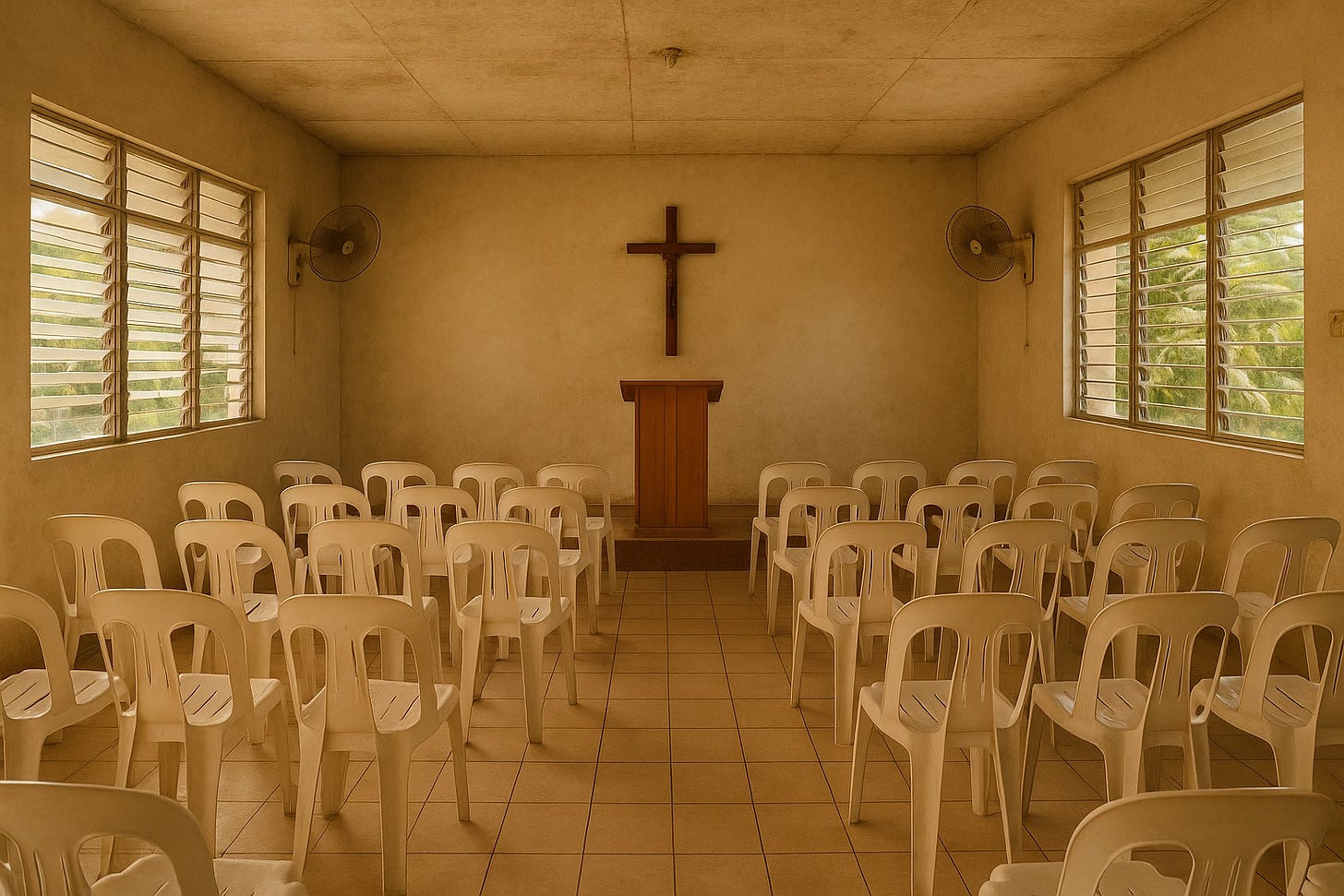When You’ve Sat in Many Pews
A reflection on church-hopping, restless faith, and the search for a gospel that holds in both creed and life
This reflection was originally published on Medium under the “Even Here” publication.
Read it there → Even Here

From time to time, I meet believers who, over the span of decades, have found themselves in many different churches: Catholic, evangelical, Pentecostal, mainline Protestant, even fringe movements they later realized were unhealthy. Each congregation added another chapter to their spiritual story. In memory, they can still picture the places of worship and fellowship: the cool stone of a cathedral, a Bible study held on the grass under the trees, the haze of lights and smoke machines in a youth service. At times they were embraced, at times unsettled, sometimes running toward something, sometimes walking away.
The Filipino Christian Landscape
In the Philippines, moving between churches is not unusual especially for those who leave their home province for the city. The move might be for university in Manila, a job in Cebu, or training in Davao. Suddenly, the religious landscape changes. In place of the familiar neighbourhood parish or the small Pentecostal fellowship down the street, the city offers cathedrals, air-conditioned megachurches, storefront congregations, campus ministries, and even fringe groups handing out flyers in jeepney terminals.
Some changes happen because of work schedules, marriage into another tradition, or a friend’s invitation to “just visit” their church. Others are prompted by a season of disillusionment that sparks a search for something that feels more true. Over time, the pews (and sometimes the plastic chairs) you’ve sat in form a kind of spiritual map, telling as much about your journey as it does about the diversity of the Philippine church.
The Critical Turn
Over time, that much movement can sharpen a believer’s instincts. You learn to compare sermons with Scripture, to spot patterns in leadership, to recognize when a church’s energy outpaces its depth. But it can also make you wary. It makes you quick to note flaws, slow to commit, or suspicious of passion that isn’t backed by integrity. In a culture where honoring authority and keeping peace are valued, such wariness can be misunderstood as arrogance or cynicism.
Sometimes I wonder, could it be that all this movement is less about deep theological conviction and more about searching for the “right” denomination? The one that finally feels like home, that preaches with both power and precision, that gets every doctrine right. If so, then moving from church to church can start to feel like changing clothes: a fresh look for a season, until something frays or no longer fits. But then, isn’t every church, no matter how faithful, still made up of flawed people? From where I stand, I don’t believe there is a single “right” denomination. Every tradition has its blind spots and its beauty. And yet, beneath the restlessness, there might be something more. A hunger for a faith that truly holds together, not just in creed but in life.
The Longing Beneath the Critique
Maybe this is what drives many restless believers. Not novelty for its own sake, but a longing for a faith that is both reasonable and livable. A gospel that speaks truth on Sundays and still makes sense on Mondays. For some, it’s the desire to worship where Scripture is handled with both reverence and relevance. For others, it’s the hope for a community that lives what it proclaims, where the fruit matches the confession.
The Relational Cost
Believers like this can be magnetic to the disillusioned, giving them language for their unease. But they can also be isolating to those who feel their community is under constant scrutiny. Churches may quietly label them as “hard to please.” Friends may keep conversations light to avoid theological sparring.
And sometimes, I have to admit, I’ve wondered if I, too, have been quietly filed away in that category, ignored rather than engaged, considered more subversive than sincere.
Holding the Tension
And yet, God meets people in this searching. Even those who feel too skeptical to belong fully, yet too believing to walk away. The body of Christ needs both the steady and the restless, the ones who preserve and the ones who provoke. For the seeker: keep looking, but guard against burning every bridge. For the community: listen without assuming hostility, and remember that the questioner may be asking from a place of longing, not rebellion.
“Instead, speaking the truth in love, we will grow to become in every respect the mature body of him who is the head, that is, Christ.” (Ephesians 4:15)


